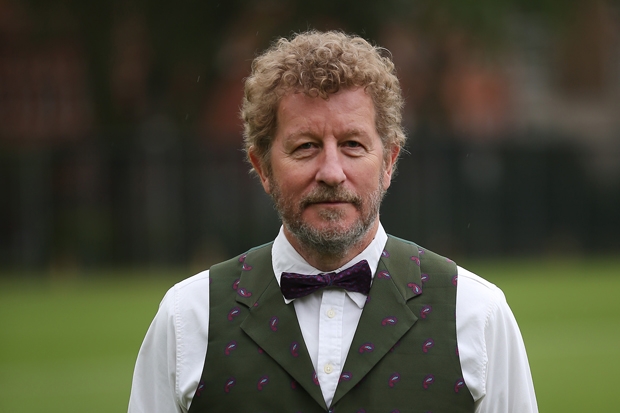There can hardly be two novelists less alike than Sebastian Faulks and Will Self, in style and in content. Faulks writes in the grand tradition of realist fiction: a list of his themes might include the brutality and waste of war, France and, of course, romantic love. Self, meanwhile, has created dystopias in which to satirise different aspects of humanity, while conjuring with all manner of stylistic invention. The one area of shared interest has been the history of psychiatry. Here, with Faulks’s new book, their preoccupations further converge. A student of literature on the lookout for a dissertation topic could do a lot worse than The Psychotic Century: 20th Century Ideas of Mental Illness and the Traumatic Effects of War in mid-period Faulks and Self.
Will Self’s magnificent Umbrella began a trilogy — Shark is the second volume —which examines the ways in which warfare and technology mirror the psychic ills of their time. His protagonist is a psychiatrist who experiments with Oliver Sacks and R.D. Laing-esque methods of treatment. In the current novel, Faulks, too, has a psychiatrist as his central character and he too initiates experimental, Laing-style care of schizophrenic patients. The doctor’s entire life has been drained of colour by his experience of combat during the second world war. When he is befriended by a much older neurologist, the latter’s time serving in the Great War becomes a lens through which to view and make sense of his own life.
This is a highly ambitious novel of European ideas, taking in everything from Socrates to T.S. Eliot. Some of the horrors of the two wars are described at length, and a doomed love affair forms an important part of the narrative. Fans of Faulks — and they are legion — will find a great deal to admire and ponder and sorrow at within these pages. Its aspirations are sincere and noble.
And yet. Aim and execution are not the same thing. I was never able to form a convincing picture of the narrator, less still of his enigmatic lover, while the older physician was almost absurdly under-realised. The ending of the book is quietly devastating, but its effect is marred by the facile tying-up of loose ends which precedes it. Faulks is right to identify the impossibility of hope in the face of the evils of the 20th century as the stuff of tragedy. But the moral and emotional force of this great loss is diminished by the meagreness of his characterisation.






Comments